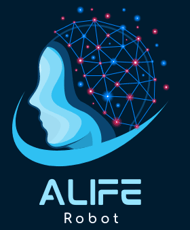The Future of Artificial Intelligence: A New Era of Innovation
4/25/20242 min read


The Future of Artificial Intelligence: A New Era of Innovation
Artificial Intelligence (AI) has made remarkable strides in recent years, revolutionizing numerous industries and transforming the way we live and work. As technology continues to advance at an unprecedented pace, the possibilities for AI seem limitless. In this article, we will explore the exciting new developments in AI and the potential they hold for the future.
Advancements in Machine Learning
One of the key drivers of AI progress is machine learning, a branch of AI that focuses on enabling computers to learn and make decisions without explicit programming. Recent breakthroughs in machine learning algorithms have led to significant advancements in various domains.
For instance, in the field of healthcare, AI-powered systems are being developed to assist doctors in diagnosing diseases and predicting patient outcomes. By analyzing vast amounts of medical data, these systems can identify patterns and provide valuable insights, ultimately improving the accuracy and efficiency of medical diagnoses.
In the realm of finance, AI algorithms are being utilized to analyze market trends and predict stock prices. This enables investors to make more informed decisions and maximize their returns. Additionally, AI-powered chatbots are transforming customer service by providing personalized and efficient support, enhancing customer satisfaction.
The Rise of Deep Learning
Deep learning, a subset of machine learning, has gained significant attention in recent years. It involves training artificial neural networks with multiple layers to recognize patterns and make predictions. Deep learning has revolutionized various fields, including computer vision, natural language processing, and speech recognition.
With the advancements in deep learning, we can expect to see further improvements in autonomous vehicles. Self-driving cars are becoming a reality, thanks to AI algorithms that can analyze real-time data from sensors and make split-second decisions. This technology has the potential to reduce accidents and congestion, making transportation safer and more efficient.
Ethical Considerations and Regulation
As AI continues to evolve, it is crucial to address the ethical implications and potential risks associated with its implementation. Issues such as privacy, bias, and job displacement need to be carefully considered and regulated to ensure that AI benefits society as a whole.
Regulatory frameworks are being developed to govern the use of AI and protect individuals' rights. Organizations are also adopting ethical guidelines to ensure responsible AI development and deployment. Striking the right balance between innovation and ethical considerations is paramount for the future of AI.
In conclusion, the future of AI holds immense potential for innovation and transformation across various industries. Advancements in machine learning and deep learning are paving the way for new applications and improved decision-making capabilities. However, it is essential to address ethical considerations and regulate AI to ensure its responsible and beneficial use. As we embark on this new era of AI, let us embrace the possibilities it presents while being mindful of the challenges it may bring.
